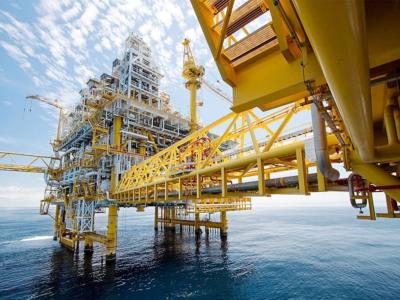The Covid-19 pandemic has jolted the world community to its depths, with negative consequences for all sectors around the world. The oil and gas industry is no exception, with the outbreak causing a complete demand slump in the market with worldwide air travel and all forms of transportation restricted to essentials under the lockdown imposed globally to break the Covid-19 chain of people to people contact. With oil prices going as low as US $20 per barrel, and a further risk of falling below this range, the presumption is oil demand will most likely taper down to well below the 1.2 million barrels per day or even further below this, thanks to the strict lockdown. The impact of Covid-19 has thus reduced significantly the number of oil and gas development contracts. Furthermore, many oil and gas majors are reducing their Capex exposure in this non- favourable market conditions.

These developments are giving negative vibes and dragging the oil and gas services market and the expansion phase further down. Consequently, oil field developers have started relooking at their strategies and Capex plans for 2020. Surplus volumes available with producing countries amid global drop in oil demand leaves the oil companies grappling for limited storage space.
Distant storage locations or paid storage currently available with end users increases cost as transportation fees, which will get factored into the selling price. Additionally, the relatively short shelf life of gasoline and jet fuel increases their worries of uncertainty prevailing around the world. Limitations of storing light crude alongside heavy crude poses further challenges for these oil producing companies.
The oil and gas industry has been struggling with multiple complex issues, due to reduced energy demand, energy transition, growing volatility in oil prices, change in government regulations to meet challenges, turbulent demand of enhanced technologies and intensified global competition, among other factors. With this, the worldwide liquefied natural gas (LNG) sector too has started reeling under tremendous pressure of falling oil prices and weak LNG demand in view of poor global economic outlook. This could lead to postponement of financial investment decisions (FIDs) and construction delays of some of the engineered projects in pipeline.
The high costs, particularly to engineering, procurement and construction projects, have become a critical issue for the world hydrocarbon industry – such as refinery, petrochemical, and power generation industries during the last few years – in light of the global down trend towards completing ongoing projects aimed at adding capacity in all sectors. It is one of the major factors behind the reconsideration of some advanced projects in some regions of the world, leading either to postponement or total shelving in some cases.
These factors increased the risk to run efficient and most sustainable companies in every sector. Without a finer picture soon, and long lasting effect of Covid-19 and the pressure on oil prices adding to the already exhaustive list of problematic factors, industry should embrace the modern digital business models and adapt it more prominently across their line of operations.
These ramifications will carry on impacting majorly the oil and gas sector, and it is highly unlikely that the current global difficulties will subside soon. The longer this situation continues, and there appears no light at the end of the tunnel, the more severe its effects will be felt. For those at the helm during this crisis, to ensure continual development, and ultimately target to achieve sustainability, should be the priority. Companies can explore adoption of new business models to bring down costs where digital is a feasible option to implement in current work environment and for future growth.

Digital capabilities can increase overall performance
Under the present adverse conditions, the value proposition for digital has increased further and firms with traditional, semi-automated or even those with present level of automation can apply advance digital controls by using a combination of technologies leveraging digital control in operations and maintenance optimisation. This would enable companies to reduce capital investment and testing in virtual environment before applying it to the real one, while maintenance optimisation will help address routine maintenance by software supported systems, analyzing big data, and failure-pattern recognition. Using advance digital tools, the hydrocarbon industry can deliver improved results with low attractive Opex.
Changing from predictive to proactive schedule maintenance using digital tools show gains in high productivity. The value that such insights would bring to hydrocarbon companies cannot be overlooked. Indeed, oil and gas companies producing refined products have always made use of available technology. However, they have some time been slower than organisations in other industries to adopt the latest digital transformation using Artificial Intelligence – missing an integrated digital incorporation during strategy formation, salient capabilities and solid action plans. Analytical tools can be used to transform production capabilities to support new strategies, and leverage the power of consistent improvement during sudden decline in demand for now and future.
1. Major reduction in data interpretation time
2. Reduction in engineering hours plus quick development of field concepts
3. Faster well delivery and increase productive wells, and
4. Reduced maintenance time/cost by improving uptime using predictive/proactive maintenance.
Companies focusing on use of digital capabilities can increase overall performance and obtain better results. Organisations are able to reduce costs with improved efficiency by very little time spent to interpret data using advanced computing and displaying in required format to take corrective action and capture machine learning simultaneously for saving signature pattern. With Internet of Things (IoT), big data analytics, and the increased use of artificial intelligence have improved machine learning, and it assists all major companies in improving project and operation economics.
From a global perspective, the hydrocarbon sector could well be navigating through a period of uncertainty by using digital technologies for times to come. Oil companies are dealing with a plethora of challenges and current crisis could be a catalyst to accelerate transformation, while keeping an agile approach. Adjusting priorities by way of digital transformation by being responsive to short term strategic directions and winsome by adopting the sincere change of operations is key to prepare for the future which will help Capex/Opex optimisation, improved production efficiency, and safe performance.

SeeGlobal International
Gurgaon, Haryana, India
Design and Development Office
Seeglobal International
Plot No. 53 – 54, Sec 16
Noida (UP) India 201310
Subscribe above to receive our eNews, featuring scientific research, new products, and exclusive
promotions. You can easily unsubscribe at any time. Sign up today!